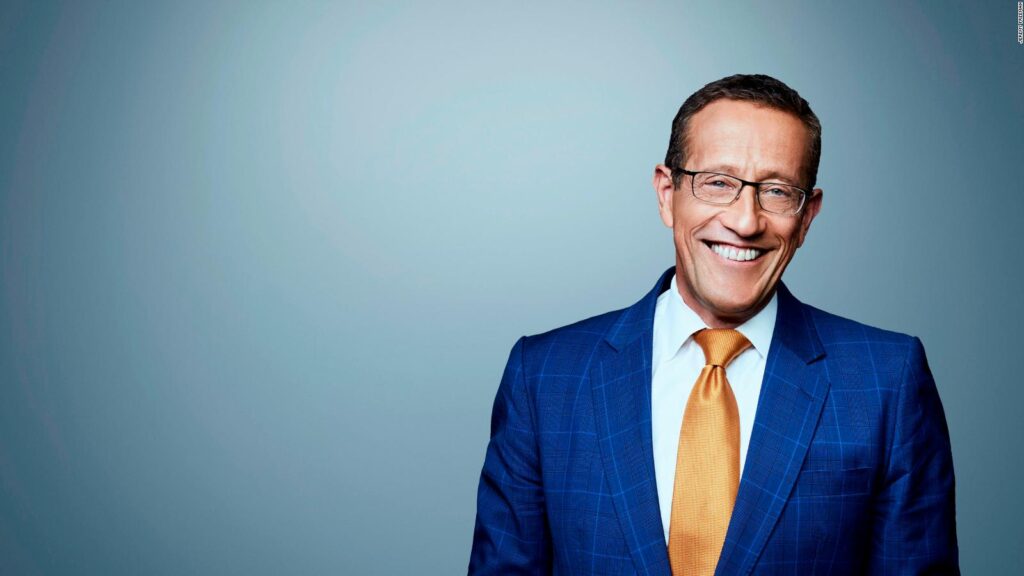By Richard Quest, Anchor & Business Editor-at-Large, CNN
CREDITS CNN
Is Davos without the cold and snow still Davos? We are about to find out. For those accustomed to coming together in January to “improve the state of the world”, the World Economic Forum’s decision to hold its annual jamboree in springtime will give us the chance to work out exactly how much the cold icy environment helped stimulate debate and discussion.
I’ve always thought there was a camaraderie that comes from schlepping up the mountain in winter. The cold is a great leveller: the rich and powerful can fall over and sprain an ankle just as easily as the rest of us mere mortals (even as they are climbing out of their sustainable limos).
Of course, the WEF has been unable to hold a Davos for the last two years, not that it didn’t farcically try to arrange them – firstly in Singapore, then in Davos itself – only cancelling them at the very last moment when it was blindingly obvious that the events couldn’t take place.
This time going to Davos-sans snow-will have gravity and seriousness about it that I cannot recall in two decades of attending.
Europe is at war. We are facing the worst inflation in 40 years, with central bankers wrestling to get it under control by stamping on the brakes. The entire structure of globalisation – the very mother’s milk of Davos – is teetering.
There is one common refrain amongst policymakers and CEOs: this is the most difficult time that they can remember. Everyone knows that the geopolitical situation will never be the same again. The post-Second World War beliefs, buttressed by the end of the Cold War, are in tatters. Don’t believe me? Then why are Sweden and Finland, countries with long histories of the non-military alliance, about to join NATO (assuming Erdogan gives in)?
Then there’s China, continuing its extraordinary zero Covid policy. While the rest of us are pretty much back to normal, tens of millions of people in China are still living under the yoke of lockdowns. What’s more, the country is exporting it supply chain issues to the rest of us and worsening an already bad situation. So much for globalisation. This, dear WEF, is the landscape to which you are “committed to improving the state of the world”.
Bearing this in mind, I’m dismayed to find this year’s agenda to be a raft of often bizarre debates and panels, woolly in tone and esoteric in the topic. The right people may be coming to Davos, but the wrong questions are being asked of them.
If I was in charge, I think I would keep it to one simple question: “what do we need to do next to avoid world war, years of mediocre economic growth and famine?”
And before you excoriate me for putting forward a rich world agenda – try running the rest of the world when the developed economies are in deep trouble.
I’m not totally pessimistic: I still believe there is great value in all the decision-makers coming together to hear what they think, what they believe, how they think we must act. The optimistic part of me is focused on the possibility that coming together will help us sort a way through, providing we don’t get side-tracked by WEF gobbledygook.
Recently I interviewed the secretary-general of NATO. I found myself asking him what his plans were if the Russia Ukraine war turned nuclear. I could not believe that I was actually asking about the real possibility of nuclear conflict. Ultimately, my entire week in Davos will be coloured by that moment. These are serious times. At least for now, “improving the state of the world” is as simple as not blowing it to smithereens.










Good day! This is my first visit to your blog!
We are a group of volunteers and starting a new project in a community in the same niche.
Your blog provided us useful information to work on. You have done a marvellous job!
Unquestionably imagine that that you stated. Your favorite reason appeared
to be on the web the easiest thing to keep in mind of.
I say to you, I certainly get annoyed whilst folks think about worries that they just don’t know about.
You controlled to hit the nail upon the top as well as defined out the whole thing with no need side-effects ,
people could take a signal. Will probably be back to get more.
Thank you
Post writing is also a excitement, if you be acquainted with afterward you can write if not it is
complex to write.
You could certainly see your enthusiasm within the article you write.
The world hopes for more passionate writers like you who aren’t afraid to mention how
they believe. All the time go after your heart.
Great blog here! Additionally your web site a lot up very fast!
What web host are you the use of? Can I am getting your associate hyperlink to your host?
I wish my website loaded up as fast as yours lol